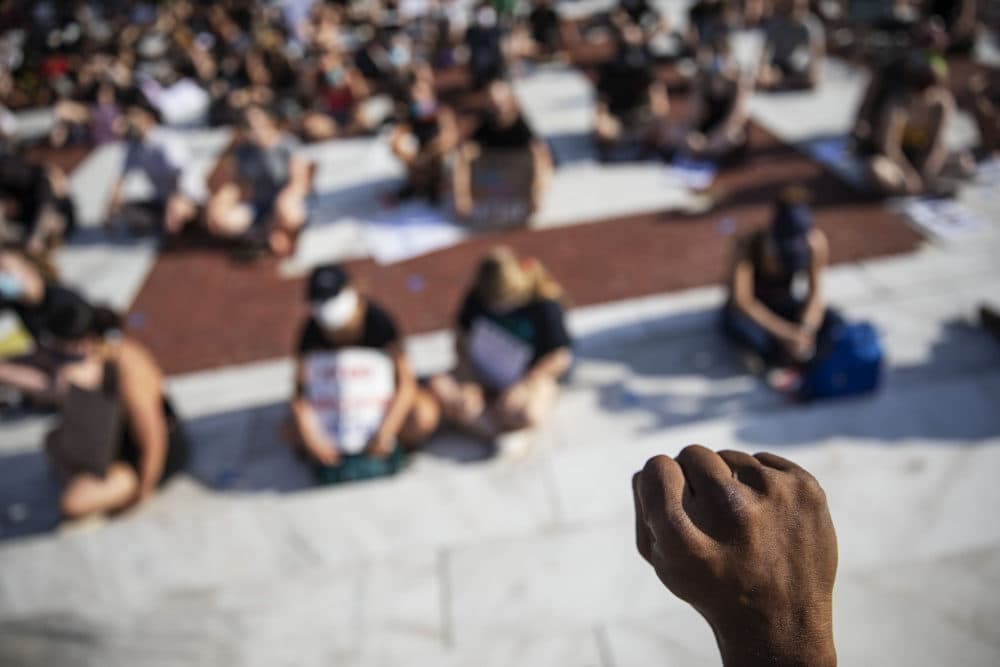Advertisement
Providence Mayor's Executive Order Marks First Steps Toward Reparations In Rhode Island
Resume
In the wake of nationwide protests against police brutality and racial injustice, the city of Providence is considering providing reparations for residents of African and Native American descent.
An executive order signed Wednesday by Mayor Jorge Elorza will examine the feasibility of reparations and aim to help the city confront its historical involvement in the slave trade and mistreatment of Native Americans.
Mayor Elorza joined WBUR's Morning Edition to talk about the city’s plans. Here are highlights from the interview, lightly edited for clarity.
Interview Highlights
On why now is the time to pursue reparations in Providence
You know, first of all, it is somewhat shocking — maybe it shouldn't be — but it is shocking that very, very few cities, if any, have gone through this process up to this point. And so, as we're looking at the moment that we're living through right now, we wanted to make sure that we don't let this moment pass after the killing of George Floyd and so much political and social unrest. We want to make sure that we make something out of this moment. I've been engaged with a group of African-American leaders for the past several months. I brought this idea to them, and everyone was in agreement that it's the right thing to do and it's the right time to do it. And the reason why I think it's the right thing to do is our Black community has endured decades and generations and centuries of mistreatment. We need to reconcile our ideals of who we believe we are and want to be as a society with the actual treatment of Black Americans, and they just don't match.
On what specific form reparations could take
We're open-minded about that. There are legitimate questions about what shape, what scale and who's eligible. And those are all legitimate questions. But they're questions for another day as well. We're committed to this process, which first is going to document the history of Providence through the lens of our Black community and then use that research that we put together to bring the community together in a community healing process, which we call a reconciliation phase.
I really believe that there's this fundamental goodness in people. And when you match the kind of community that we see ourselves as with the actual treatment of Black leaders in our Black community, that mismatch is going to cause many people to want to be part of a solution, which will then bring us to the reparations phase. And I'm open to what kind of recommendations the eventual committee will come up with. Is it community-wide investment? Is it direct investments in individuals? We don't know what that committee is going to come up with. But what we are sure of is that it's the right thing to go through this process. And we have to keep an open mind about what kind of investments and what kind of reparations the community wants to see.
On whether criminal justice reform will be worked into the reparations discussion
In all truth, that's not the spirit that we've been pursuing up until this point. But we have to see what gets uncovered. If during this truth phase, there are discoveries that are made where laws were broken, then certainly those would be pursued in the appropriate forums. But what we want to do is first dive into that history and tell the story through the lens of our Black community, learn from that and then use that to bring folks together. And then as we work through this process, we won't just leave it there hanging if there's an injustice that's been done but then move on to right that wrong. What do we do about it? And that's how we complete the circle.
On the feasibility of reparations
I know that at the municipal level, there is no way that we can make good on all of the injustices. This has to happen at every level: at the state, at the federal and from private institutions. But there's a lot of value to showing leadership at the local level to taking the initial steps. And then also, you just never know what the future holds. Even if we can't fully, fully make good on the reparations that are required immediately, know there are decisions that will be made in the years to come. And if we've gone through this process and the recommendations have been accepted by the community, we know that, over the years, we do have to make good on this as financial or other opportunities present themselves.
This article was originally published on July 16, 2020.
This segment aired on July 16, 2020.
